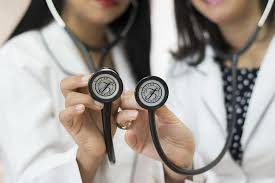Stepping into the world of gynecological care may be a challenge when you’re young, but having the right information helps. For teens, gynecology is an opportunity to learn about their health and make informed decisions about their well-being. Here are a few topics that young people typically explore during this stage of life:
Preparing for First Visit
The thought of visiting a gynecologist can be challenging for teens. For many appointments, the focus is on understanding your medical history and addressing any questions or concerns you may have. Initial visits don’t require a physical exam in many cases, unless there’s a specific issue. Gynecologists typically explain topics such as menstruation, physical development, and overall health.
Navigating Menstrual Health Issues
Periods are a part of life for many teens, but they often come with challenges. Typically, cycle lengths or flow vary during the early years, which may raise questions. If you experience severe cramps or irregular periods, talking with a gynecologist opens up options for management. There are ways to ease discomfort, such as tracking your cycle, warming pads for cramps, or discussing prescription methods to regulate hormonal changes.
It’s also helpful to maintain a balanced diet and stay hydrated, as this can support overall well-being during your cycle. Incorporating light exercise, such as yoga or walking, may help reduce symptoms like bloating or fatigue. When it comes to gynecology, finding what works best for your body can make this time more manageable.
Learning About Safe Sex
Understanding safe sex practices is a fundamental conversation. A gynecologist can share privacy-protected advice on preventing sexually transmitted infections (STIs) and choosing contraception. Condoms and birth control pills are typical options for teens, but decisions about contraception depend on individual needs. Open discussions may make it easier to weigh options and understand aspects such as how methods work, usage frequency, and related concerns.
Addressing Typical Teen Concerns
Being a teen typically comes with questions about your body, self-image, and mental health. Acne is something many people deal with, and while over-the-counter products work for some, others may need prescriptions tailored to their skin type. Meanwhile, body image struggles may be a part of growing up. A gynecologist or primary care doctor is a safe person to talk to about insecurities or patterns affecting mental well-being. These professionals may also connect you with specialists if additional tools or resources are needed.
Teaching About Preventive Care
Preventive care focuses on identifying and addressing potential health concerns before they become serious. For example, the HPV vaccine protects against certain types of cancers and is typically recommended during the teen years. In this regard, many teenagers undergo routine health screenings during annual check-ups. Preventive measures like these support long-term health and well-being. Having open, honest conversations with your doctor builds trust and helps you understand what to expect.
Find Gynecology Services at a Clinic Near You
Gynecological care is an opportunity to gain knowledge, ask personal questions, and take steps toward feeling confident in your choices. Whether it’s getting support for menstrual pain, learning about contraception, or exploring mental health topics, talking with a gynecologist allows teens to make informed decisions. Schedule an appointment with a gynecologist to learn more.
- Choosing the Right Plastic Surgeon for Your Cosmetic Procedure
- Understanding Different Types of Laser Treatments for Skin Rejuvenation
- Why a Family Dentist is Key for Maintaining Oral Health
- The Benefits of Regular Visits to a Wellness Spa
- Exploring the Emotional and Psychological Triggers of Eating Disorders


Leave a Reply